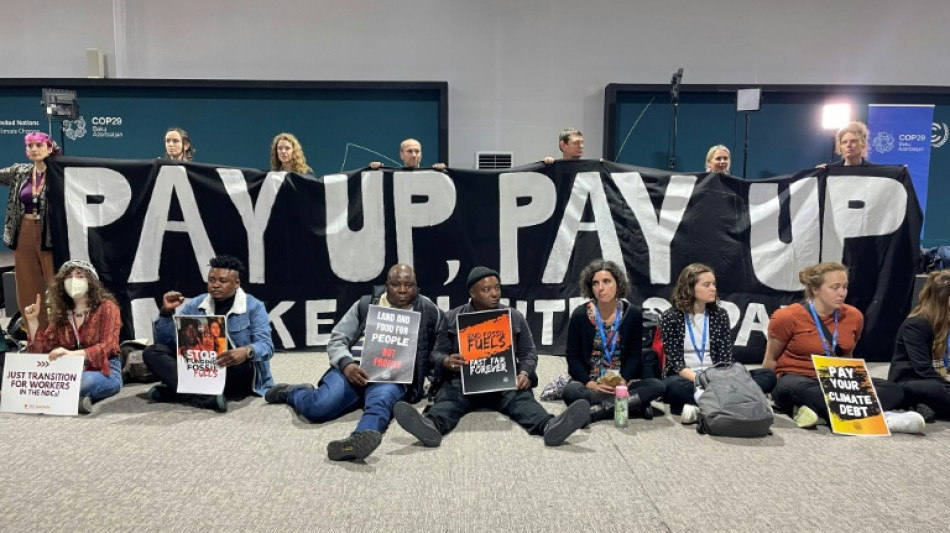
BCC
-0.4000

Pressure mounted on wealthy nations Wednesday to put a figure on the table as time runs out at COP29 to strike a deal on climate assistance for poorer countries.
With two days left to break the impasse at the UN talks in Azerbaijan, rich nations have still not revealed how much they are ready to provide the developing world to fight climate change.
"We need a figure," said Adonia Ayebare, chair of the G77+China group of developing nations.
"Then the rest will follow. But we need a headline," the Ugandan negotiator told reporters.
Developing nations, from islands imperilled by rising seas to drought-afflicted states, contribute the least to global warming but have called for $1.3 trillion annually to prepare for its impacts.
They say rich historic polluters have a duty to help, and are clamouring for an existing commitment of $100 billion a year to be increased many times over at COP29.
Talks have gone around in circles for over a week but a slimmed-down draft is expected to land in the early hours of Thursday, ensuring a sleepless night for negotiators.
"I'm sure we will have some long days and hours ahead of us... This will be a very steep climb," EU climate commissioner Wopke Hoekstra told reporters.
Colombian Environment Minister Susana Muhamad said it was difficult to speed things up "when there's nothing to negotiate".
"The concern is that at this moment, nobody is putting a figure on the table," Muhamad said.
Rich countries on the hook for climate finance, including the European Union and United States, say they cannot show their hand until they know what they are agreeing to.
"Otherwise... you will have a shopping basket with a price, but you don't know exactly what is in there," said Hoekstra.
"We don't just want to pluck a number from the sky," echoed Germany's climate envoy Jennifer Morgan.
- China role -
Developing countries, excluding China, will need $1 trillion a year in foreign assistance by 2030 to wean off fossil fuels and adapt to worsening disasters.
This number rises to $1.3 trillion annually by 2035, according to an expert economic assessment commissioned by the United Nations.
But many of the nations obligated to pay face political and fiscal pressures, and insist they cannot cover this cost on their balance sheets alone.
Developing countries want public grants from governments -- not loans or private capital -- to make up the majority of the new finance goal under negotiation.
Three figures -- $440 billion, $600 billion and $900 billion -- had been floated, said Australian climate minister Chris Bowen, one of the envoys leading the finance negotiations.
Delegates from several countries told AFP these numbers were not proposed by developed nations themselves.
"Many parties told us they need to see certain building blocks in place before they can put forward their suggested number," Bowen told COP29 delegates.
Chief among these is a demand for emerging economies such as China and Saudi Arabia, which have grown wealthy yet remain classified as developing nations, to chip into the pot.
"There are countries out in the world that have an income level that is close to or above the poorest European countries, and we think that it's only fair to ask them to contribute," Danish climate minister Lars Aagaard told AFP.
- 'Receding hope' -
Bowen said some countries had drawn a "red line" over the type of money that could be included in any deal, insisting it come "from a wide range of sources and instruments".
Bolivia's chief negotiator, Diego Pacheco, said there was a "steadily receding hope of getting an ambitious" deal and cited $200 billion as one number in circulation.
"Only 200 billion," he told the conference. "This is unfathomable, we cannot accept this."
The lead negotiator of COP29 hosts Azerbaijan, Yalchin Rafiyev, urged countries to "pick up the pace".
"Let us embrace the spirit of collaboration, compromise and determination to ensure that we leave this conference with outcomes that make a real difference," he said.
Y.Sharma--DT